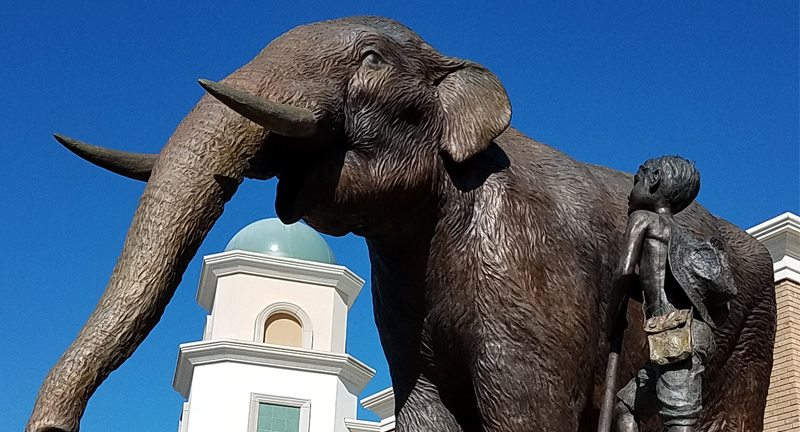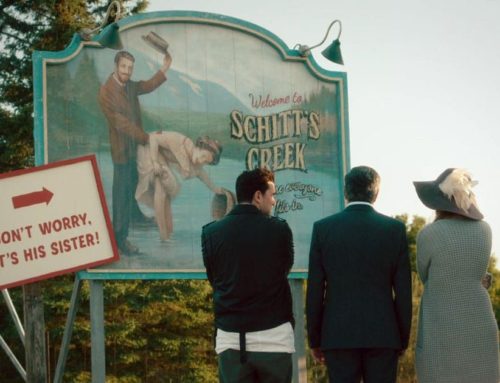A guest blog post by Arthur Breur.
Arthur was featured in Ep 72 of The Portfolio Composer. He also wrote a blog series for The Portfolio Composer website on the power of blogging. You can find them here, here, and here. This post was originally posted on Shell Train’s Untangling Money Knots blog.
If you’re in the Portland, OR area be sure to get your tickets at the following link to hear the premier of the piece described below: Tualatin Valley Symphony Tickets.
A Composer’s Money Knot
I recently experienced an interesting “money knot” situation that thought you might find value in.
First, a little bit of my own history.
I have composed music my entire life, and I consider it my best talent and skill. But I have never worked “full time” as a composer. I have worked in print, graphic design, and website design, and many years ago started my own “multimedia” business that currently focuses on web development.
Around my 40th birthday, as many people do, I started to think about my life and what I really wanted to accomplish. Where had my dreams gone of composing? I still thought of myself as being a composer, but I had barely composed anything for years.
I pulled out the old sheet music from my various compositions, in every state of completion, and started working on them again. That was about nine years ago, and in those nine years I have easily composed as much music as I had over the twenty-some years before that.
A few years ago, I took these efforts one step farther and joined the Tualatin Chamber of Commerce as a composer. I have always made sure my company belonged to the local chamber, but I wanted to make it official that I was now also “in the business” of composing music. It was a first step toward getting paid for writing music, and therefore being considered as a “professional” composer!
Then, through an event put on by the Chamber of Commerce I was introduced to the Tualatin Valley Symphony. That’s right: a symphony orchestra performs practically in my own back yard! Well, to make what could be a very long story very short, in late October 2016, I met the orchestra’s Conductor & Music Director, Mark Perlman, and he offered that if I composed a piece for the orchestra’s May 2017 concert, they would perform it—which was the moment of inception for my new work, the Tualatin Overture. Through all this I was deftly stepping over the idea of my composing actually generating income!
Enter the Chamber of Commerce “AM Networking” events.
 When I first conceived of the Tualatin Overture, I did not spend any time imagining that it was a commission. It was an offer from the conductor of a non-profit community orchestra to perform a work, but it was not the offer to pay me for it. I was eager to create a piece of music that would be performed by an orchestra, and I strategically planned that it would be something I did for the City of Tualatin, hoping that doing so might give the work extra “legs” beyond a single performance—but I was not expecting that I would be compensated financially by the orchestra or by the city.
When I first conceived of the Tualatin Overture, I did not spend any time imagining that it was a commission. It was an offer from the conductor of a non-profit community orchestra to perform a work, but it was not the offer to pay me for it. I was eager to create a piece of music that would be performed by an orchestra, and I strategically planned that it would be something I did for the City of Tualatin, hoping that doing so might give the work extra “legs” beyond a single performance—but I was not expecting that I would be compensated financially by the orchestra or by the city.
At some point it occurred to me that, even though this was not a commissioned work, I need not be entirely on my own spending so much of my own time and money (sheet music needs to be printed out, copyrights need to be filed, etc.) on the project. While I was the only person who would be creating the music, surely members of the Tualatin community—businesses and individuals both—would feel that this project was something that they could support. So I came up with the plan to appeal for patrons of the work, and I planned that the first group I would reach out to would be local businesses. The perfect opportunity for this kind of request was the Chamber’s weekly AM Networking event, which includes the opportunity to pay $5.00 for one minute of time in front of the members of the Chamber—usually more than 50 business owners and representatives.
So I stood in front of the Tualatin Chamber and reminded them that I was composing the Tualatin Overture, and announced that I was looking for patrons whose names and businesses would be included on the score and in the program notes I would be creating for the composition. I had come up with the initial target of getting total commitments of $1,000 that day, and asked for five or more contributions of $200 each.
And here comes the “money knot”—and the surprising outcome.
After the AM Networking ended that day and people were milling around chatting, a member of the Chamber—who happens to also be a fan of my music—very forthrightly, and with every intention of helping, suggested that asking for contributions of $200 was just too much, and I should have asked for contributions of, say, $20 instead. Yes, it would take more contributions, but I would get more people contributing at a more “manageable” cost. (I immediately noticed that this person’s perspective was influenced by a money knot, of not ‘asking for too much’ and that my situation was an example of what Shell refers to as others dumping their ‘money stuff’ on us.)
Then, right as I was having that conversation, another chamber member walked up and said they wanted to be a patron for the overture, and offered a contribution for $500 on the spot. They certainly had a different money perspective of how much was ‘enough’ or ‘too much’, and suddenly with just a single patron, I was halfway to my starting goal!
Later that same day I reached out to another chamber member who had not been able to be at the AM Networking. This was someone who is a long-time fan and who had previously commissioned me to compose a song as a birthday gift for a relative. Without my mentioning a number, they offered to write a check for $500.
So within the day I had achieved my initial target of $1,000 from just two eager patrons. I have continued pursuing more patrons and will so until I have to print the “final” score and program notes for the premiere performance.
I can’t help but wonder how the day might have turned out if I had asked for $20 contributions—or if I had asked for $500 contributions. It’s very interesting to look at how our thinking about money can either limit or expand our possibilities.
And now here I am, a working composer, making money at my craft.
— Arthur Breur





